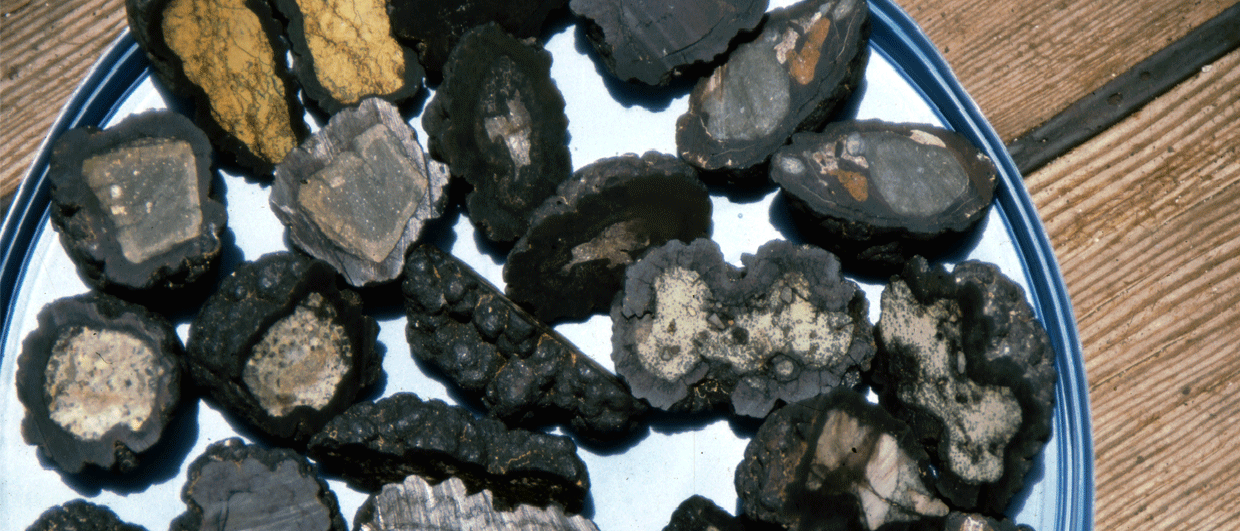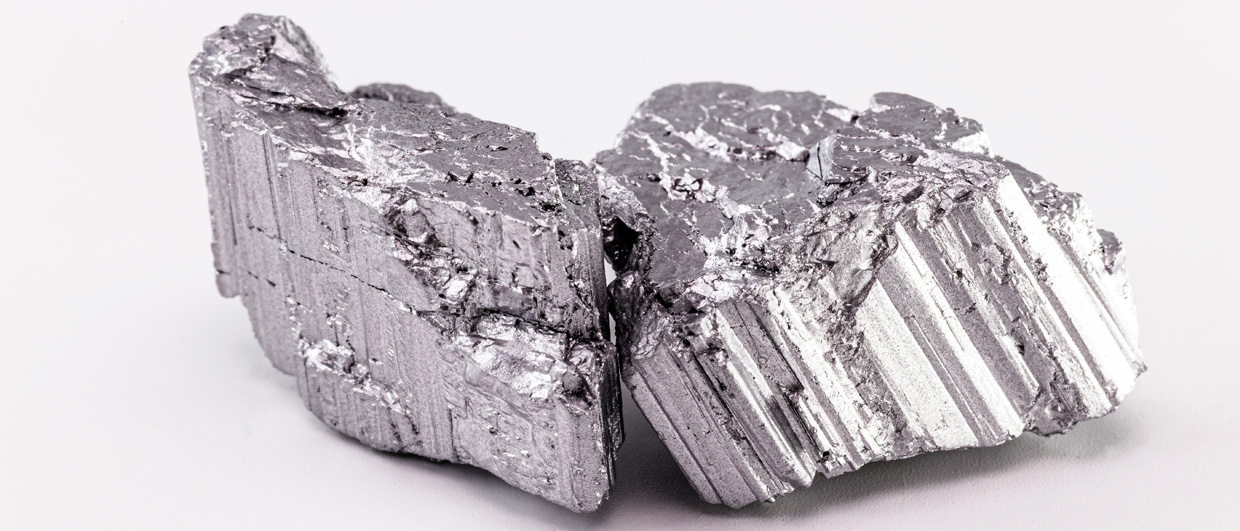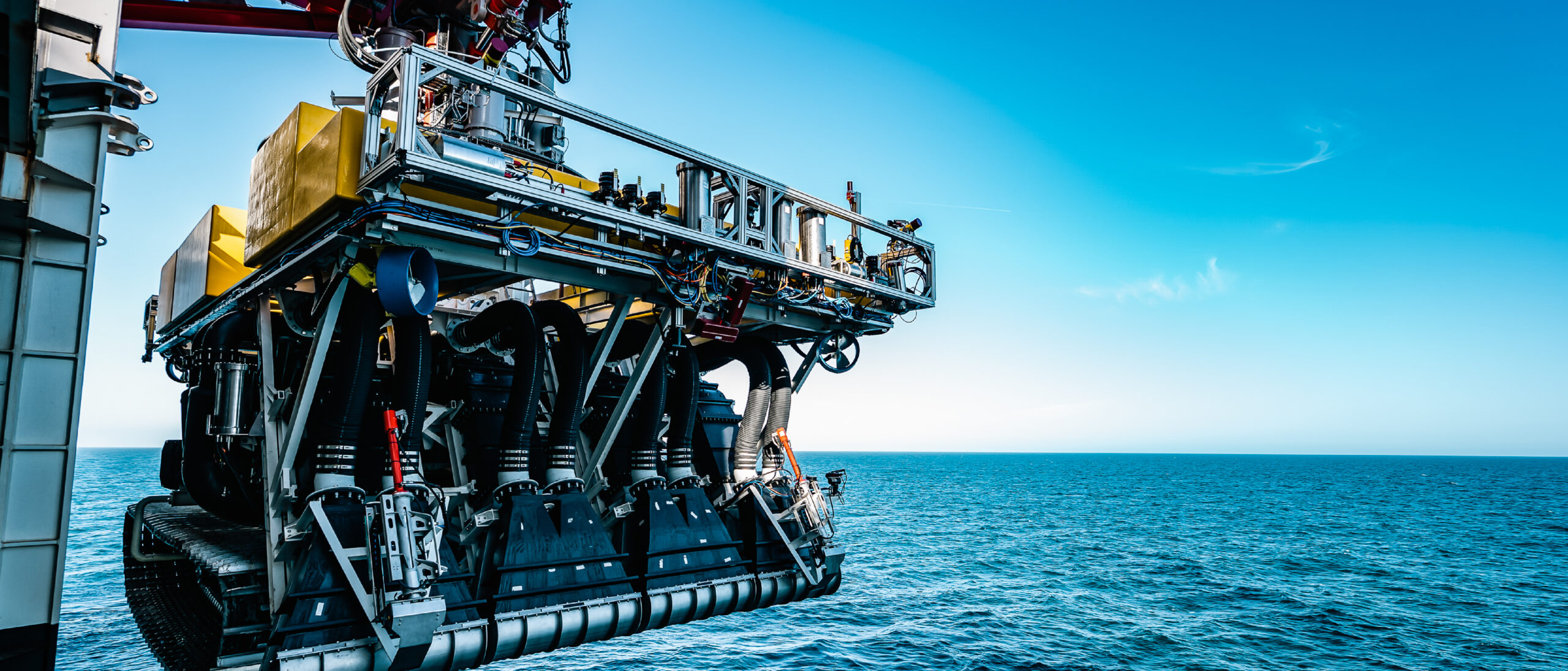The consequence of building a green future, according to Gerard Barron, Chairman & CEO of The Metals Company, is that “our generation will need to mine more metal than we have mined in our entire history”.
“Electric cars, wind and solar power, batteries – they all need metal, often several times more metal than is now used by gas-guzzling cars, coal, and natural gas-fired power plants,” Barron says in the Canadian company’s Impact Report 2021.

Metals used in clean energy technologies compared to other power generation sources. Image by IEA
Without harming the environment
The overwhelming challenge is that metal extraction in land-based mines all over the world comes with its own set of human and environmental costs.
“How do we make sure the required metals are extracted without harming local communities and without exceeding planetary ecological boundaries? Barron rhetorically asks in his “Letter from the CEO”.
The simple – albeit also intricate – answer is the mining of polymetallic nodules that have been deposited on the oceans’ abyssal plains for millions of years.
“Instead of developing three different types of mines on land, we believe we have a way to obtain some of the critical metals – namely, nickel, copper, cobalt and manganese –
- without digging new mines,
- without cutting down rainforests and destroying natural carbon sinks,
- without generating toxic waste, and
- without poisoning terrestrial habitats and human communities,”
Barron claims.
According to GSR, the composition and size of nodules vary slightly depending on where they are found. On average each is rich in nickel (1.3%), cobalt (0.2%), manganese (27%) and copper (1.2%).
«It is estimated that there is more nickel, more cobalt, and more manganese [in polymetallic nodules at the seafloor] than on the rest of the planet.”
Kris Van Nijen
Managing director of Global Sea Mineral Resources (GSR) to CBS NEWS
Slow-growing deposits

Manganese nodules are formed as accretions at 4500 meters in the deep Pacific Ocean. They grow very slowly, about 1 cm per every million years, meaning that the potato-sized nodules may be as old as 10 million years. The habitat formed by manganese nodules is home to specific sessile and mobile fauna. Image by The Metals Company
Securing mineral independency
Moreover, most battery metals are mined in challenging jurisdictions and processed and refined in China, leaving the United States and the entire EU with a strong reliance on imported battery materials.
Strengthening the impression of the green industry’s reliance on China comes from the fact China owns the vast majority of the world’s solar panel supply chain, controlling at least 75-95% of every single key stage of solar photovoltaic panel manufacturing and processing, according to graphics from Visual Capitalist.
Developing a nodule resource can thus help secure mineral independence in several critical metals, according to the CEO who founded DeepGreen Metals (now The Metals Company) in 2011. His goal is to collect polymetallic nodules in international waters and transport them for processing and refining in plants next to the battery and EV manufacturers.
“Currently, we are piloting processing and refining technologies that will be used at these plants and assessing potential sites with a focus on having access to renewable power and exploring low-carbon alternatives to metallurgical coal,” Barron states.
A single ore
“Polymetallic nodules, also called manganese nodules, contain four essential battery metals: cobalt, nickel, copper, and manganese, in a single ore. Formed over millions of years by absorbing metals from seawater, these nodules lie unattached to the abyssal seafloor and are almost entirely composed of usable materials. Unlike land ores, they do not contain toxic levels of heavy elements, and producing metals from nodules generates 99% less solid waste, with no toxic tailings.”
The Metals Company
Value for island states
Values from The Metal Company’s nodule projects will be shared with the Republic of Nauru, the Republic of Kiribati and the Kingdom of Tonga, developing countries that sponsor their work in the Area (the part of the world ocean which is under ISA (the International Seabed Authority) jurisdiction, beyond the limits of national jurisdiction, and which represents around 50 per cent of the total area of the world’s oceans).
Sponsoring states will gain royalties, local employment, and educational and capacity-building opportunities according to ISA rules. The seabed mining industry, therefore, has the potential to provide a positive impact on the sponsoring states.
“These Pacific Island nations have done the least to cause climate change, yet they are first in line to suffer its impacts. They may be small in terms of land area and population size, but they are big in terms of their ocean area and spirit. Working with these island nations is an honour», CEO Gerard Barron says in his Letter.
Colossal amounts
“It is predicted that by 2050 our planet will have a global population of 9.7 billion and 66 per cent of people will live in cities. With 90 per cent of this growth forecast in emerging economies, much of the necessary infrastructure does not yet exist and will require colossal amounts of metal to develop sustainably.”
DEEP SEA MINERALS 2022, BERGEN, OCTOBER 25-27
October 25: Icebreaker
October 26
- OPENING ADRESS: The Cook Islands Prime Minister Hon. Mark Brown
- Marine Minerals – Global Exploration Status
Featuring Cecilie Myklatun, Pedro Madureira, Harald Brekke, Ulrich Schwartz-Schampera and Erika Ilves
- The Cook Islands – The First Licensing Round
Featuring Alex Herman, Rima Browne, John Parianos, and Hans Smit
- Licence to Operate – Environmental Challenges
Featuring Jon Hellevang, Samantha Smith, Phil Weaver, Kamila Mianowics, Mathias Haeckel, Roger Skogmo, Kris de Bruyne, Thomas Peacock, Eduardo Silva, and Jens Laugesen
October 27
- Exploration Strategy & Exploration Technology
Featuring Anna Lim, Ståle Johansen, Acer Figueroa, Berit Floor Lund, Ruben Janssen, Ebbe Hartz, Pablo Sobron, Lucy MacGregor, and Ian Lipton,
- Mineral Processing
Featuring Pshem Kowalczuk, Jeffrey Donald, Oliver Gunasekara, Erica Ocampo, Thomas Lüttke, and Colin Seaborne
- Norwegian Start-ups
Featuring Anette Broch Mathisen Tvedt, Ståle Monstad, and Walter Sognnes
COMPANIES AND ORGANIZATIONS PRESENTING
ADEPTH Minerals, The Norwegian Petroleum Directorate, The Norwegian Ministry of Oil and Energy, EMEPC (Portugal), The Metals Company, Loke, The Cook Islands Seabed Minerals Authority, Ocean Minerals, GCE Ocean, Seascape Consultants, Interoceanmetal Joint Organization, GEOMAR, Kongsberg Digital, Global Sea Mineral Resources (GSR), MIT, DNV, Argeo, NTNU, National Oceanography Centre, University of Southampton, Kongsberg Maritime, Aker Marine Minerals, Impossible Sensing, OFG Multiphysics, AMC Consultants, Impossible Mining, Moana Minerals, The Norwegian Forum for Marine Minerals, Green Minerals, INESCTEC, BGR, International Seabed Authority (ISA)




